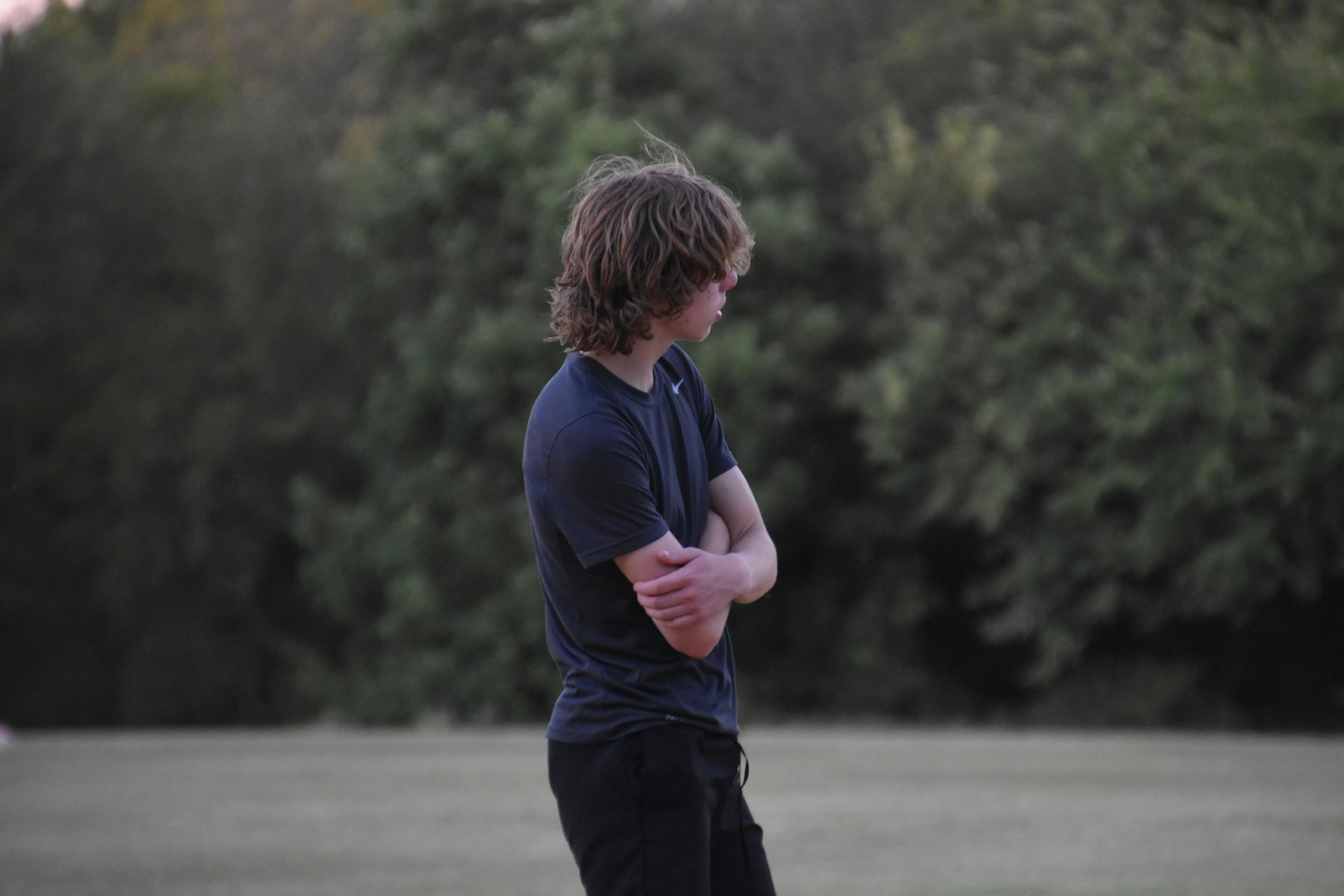Everyone starts life with a limited frame of reference for how the world works. It is a handful of adults and peers who shape us, teach us, help us grow. Sometimes, they damage us. It is only as we navigate adult relationships, intimacy, and careers that we begin to realize how we are damaged. We begin to wonder what went wrong.
Though we start life with a small frame of reference for what is “normal,” we later learn that some of the common childhood experiences we had at home and school were damaging. They resulted in deep emotional trauma that we now have to confront and heal.
A Bent Sapling
Children can be resilient, but they will only thrive when they experience healthy conditions. Essentially, children are like delicate saplings of trees growing, taking shape, and bearing fruit. How well they grow, what heights they will reach, and what shape they will take is determined by their experiences in early childhood.
All forms of violent abuse are like axes directed at the sapling. It is little wonder that they won’t grow if they had to endure those experiences at so tender an age. On the other hand, some children endure subtle forms of emotional trauma and are deeply affected by it, though they won’t immediately show it.
Common Childhood Experiences That Cause Emotional Trauma
The Silent Treatment
Many adults are not equipped to handle their emotions. They go one of two ways when they are upset: either they blow up and externalize their emotions on their kids, or they internalize their emotions and use the silent treatment. This is damaging for many reasons, but mainly because children do not understand what their parents are doing when they suddenly become distant and silent.
They are left to fill in the gaps using context clues, but without the proper understanding, they will likely come to the wrong conclusion and end up taking all the blame while feeling abandoned by their parents. This is emotional trauma.
Other parents use the silent treatment as a form of discipline. When they are upset, they might tell their kids to “go and think about their actions.” The reason this is a toxic form of discipline is that children can’t intellectualize their actions in the same way as adults. Likewise, they shouldn’t be forced to try.
They will simply feel the distance grow between them and their parents, especially in times when they need closeness and tenderness. They will likely grow into adults who can’t work through issues in relationships because they never had dialogue with someone else when things went wrong.
Policing of Emotions
“Stop sulking.”
“Don’t talk back to your mother.”
“Stop crying or I’ll give you something to cry about.”
All of these statements are an adult’s way of trying to police a child’s emotions, usually in an attempt to de-escalate a situation or set a boundary.
There are times when children are unruly and need to be reminded to be respectful. However, adults need to remember that children can’t be disciplined into regulating their emotions; most adults struggle with regulating their emotions, too. Disciplining a child because they have a powerful emotion will simply teach them that feeling and expressing an emotion is unacceptable.
They will likely grow up repressing their emotions because they have been taught that certain emotions must not be expressed or even felt. Policing emotions is emotional trauma.
Blaming the Children for The Parent’s Moods
“You’ve made me mad.”
“You’ve given me a headache.”
“I can’t with you right now.”
 Statements like these come from parents who never learned to take responsibility for their moods and emotions. Yes, adults are just people too, and people who are often flawed. However, saying these kinds of things causes the children to feel responsible for their parents’ mood, and that is emotional trauma.
Statements like these come from parents who never learned to take responsibility for their moods and emotions. Yes, adults are just people too, and people who are often flawed. However, saying these kinds of things causes the children to feel responsible for their parents’ mood, and that is emotional trauma.
These kids will learn to walk on eggshells so as not to offend their parents, or “rock the boat” too much. They will become anxious and afraid of causing an upset, because they believe that they are the reason for all of their parents’ upset emotions. As adults, they will feel guilty and anxious in relationships, likely afraid of confrontation. Those with ADHD may not be willing to be vulnerable, lest they cause their partners to become upset with them.
Having to Be the Parent
Some children are called “mature for their age” because they take an extra amount of responsibility around the house as a child. This might include cooking meals, taking care of younger siblings, feeding pets, tidying and cleaning, and generally making sure the household is functioning as it should at a level that is beyond just learning life skills through chores.
When children assume too much responsibility at too young an age, they will likely develop issues like abandonment trauma, feelings of betrayal, and an avoidant attachment style. They learn that no one can be trusted. They become independent to the point of never being able to ask for or accept help.
Hard or Strict Parenting
When parents rely on warnings and discipline all the time, they are not just strict; they are trying to dominate a child. Tough love does not work on children; it just makes them traumatized. Parents who feel the need to dominate their children do so because they feel out of control. Asserting dominance over a child because the parent wants to establish a dynamic where they are on top doesn’t have the child’s interests or future in mind.
History and culture have often praised this type of parenting, deeming it acceptable because it retains a traditional idea of hierarchy. However, it teaches children that the only way to attain power is by forcefully asserting dominance and bending other people’s wills.
They may grow up to be narcissistic bosses who bully their employees, abusive partners who don’t need consent, and hard parents who believe they are doing the right thing. On the other hand, they might grow to be fearful and submissive, seeking out toxic power structures in work and love because that is what they are used to.
Being Denied Privacy or Personal Space
Many strict parents employ policies that do not allow children to have any privacy except in the bathroom. They establish households that are forbidden to have locked doors, and even bedrooms might be monitored under the guise of safety and concern for the children’s well-being. As with other expressions of strict parenting, this policy is not truly for the children’s well-being but rather for a parent who needs to control every aspect of their children’s lives.
Most young children don’t even consider their need for privacy or personal space. As they grow, however, many children take pride in having a space like a bedroom to call their own, and it becomes a vital part of their development.
Being denied a basic human privilege like privacy and personal space is emotionally traumatizing to the natural development of a child. It teaches them that they are untrustworthy and unimportant as individuals. Giving them personal space and freedom teaches them that there is trust in the relationship and allows them to be a steward of physical things and personal time.
Growing Strong
One of the most difficult balances to walk as adults is acknowledging how we were traumatized in our childhood while at the same time taking responsibility to fix that damage. That might involve confronting our parents for certain things, or we might simply find freedom in reframing childhood experiences as “traumatic.” However, we begin working on ourselves as adults. It is never too late to start living a healthier emotional life that bears fruit and protects others.
If you would like to add counseling to your journey of confronting your childhood, call our offices today. Talking with a counselor is an excellent way to understand the impact of your childhood experiences while discovering helpful tools to confront trauma. We have therapists at our practice ready to assist you.
Photo:
“Pink and Purple Flowers”, Courtesy of Liana S, Unsplash.com, CC0 License
-
Tammy Varghese: Author
Life brings joy as well as sorrow, frustration, and disappointments. By God’s grace, He does not leave us alone. He offers a peace that passes understanding and support through brothers and sisters in Christ. When times are difficult and your struggl...
Recent Posts
-
Kate Motaung: Curator
Kate Motaung is the Senior Writer, Editor, and Content Manager for a multi-state company. She is the author of several books including Letters to Grief, 101 Prayers for Comfort in Difficult Times, and A Place to Land: A Story of Longing and Belonging...
DISCLAIMER: THIS ARTICLE DOES NOT PROVIDE MEDICAL ADVICE
Articles are intended for informational purposes only and do not constitute medical advice; the content is not intended to be a substitute for professional medical advice, diagnosis, or treatment. All opinions expressed by authors and quoted sources are their own and do not necessarily reflect the opinions of the editors, publishers or editorial boards of Stone Oak Christian Counseling. This website does not recommend or endorse any specific tests, physicians, products, procedures, opinions, or other information that may be mentioned on the Site. Reliance on any information provided by this website is solely at your own risk.






